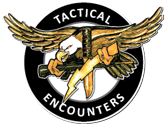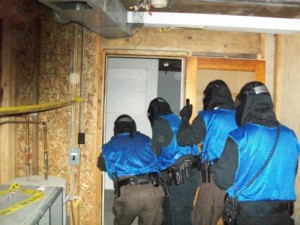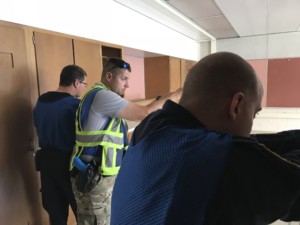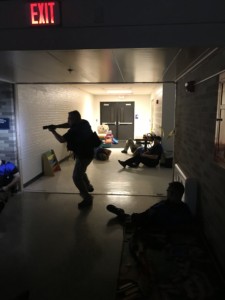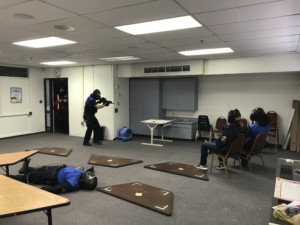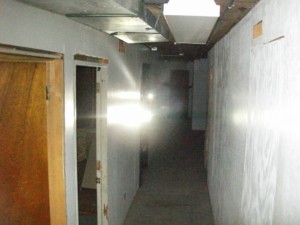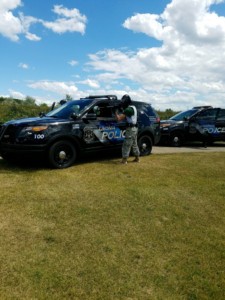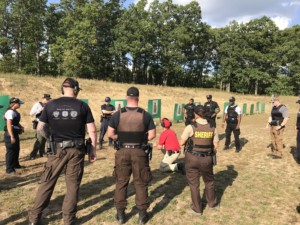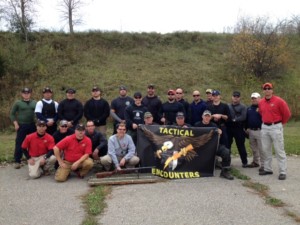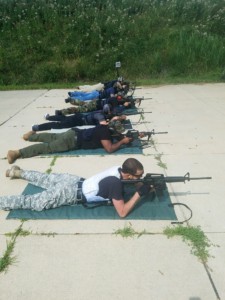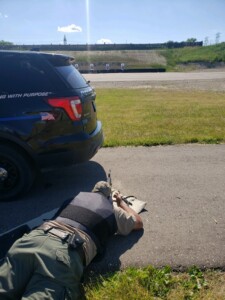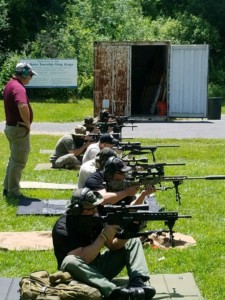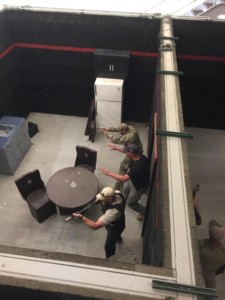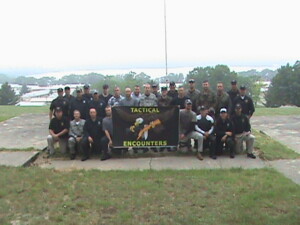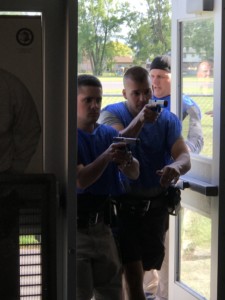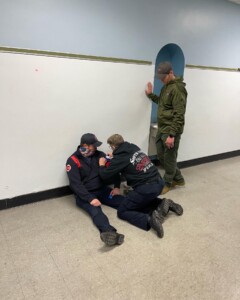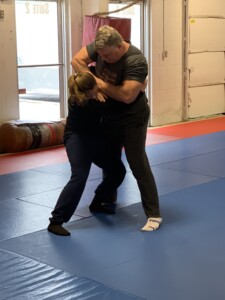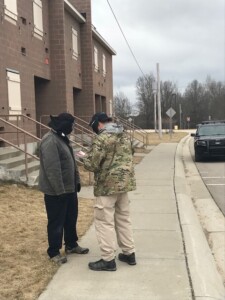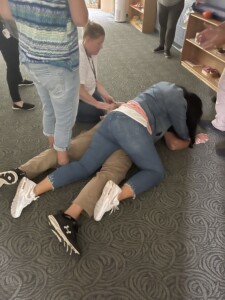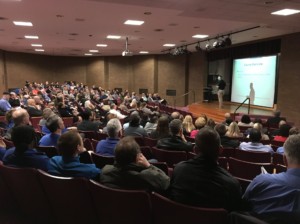OCTOBER 2025 SESSIONS FULL PLEASE CONTACT MMRMA FOR WAIT LIST
This Course will focus on tactically demanding situations such as traffic stops, arrest situations, building entries/searches, low-light tactics and high risk calls, which challenge the officer’s decision making process. It stresses positive mental mindset, which is paramount for officer survival. It also has an entire day of firearms training that moves from basic fundamentals to advanced combat skills. The bulk of this class will involve hands-on scenarios using simmunitions®.
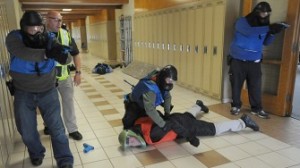 This course is designed to give officers the basic knowledge necessary to deal with rapid deployment situations (active shooter). The tactics taught in this course are more advanced than the traditional diamond or quad formations currently used by many agencies. It begins with a brief classroom orientation of history, terminology, responsibilities/objectives and tactics. The students are then broken into groups and drilled on team formations, modular & cumulative exercises, entries/room clearing, officer/citizen rescues, vehicle rescues and more. This course contains reality-based, force-on force scenarios, which place the officers in stressful situations and reinforce the methodology and tactics for dealing with this critical issue
This course is designed to give officers the basic knowledge necessary to deal with rapid deployment situations (active shooter). The tactics taught in this course are more advanced than the traditional diamond or quad formations currently used by many agencies. It begins with a brief classroom orientation of history, terminology, responsibilities/objectives and tactics. The students are then broken into groups and drilled on team formations, modular & cumulative exercises, entries/room clearing, officer/citizen rescues, vehicle rescues and more. This course contains reality-based, force-on force scenarios, which place the officers in stressful situations and reinforce the methodology and tactics for dealing with this critical issue
Through media presentation, innovative tactics and instructional techniques, this class was designed to prepare officers to become trainers in rapid deployment intervention techniques. Officers will be given the core instruction on the background, mission of first responders, history of active shooter incidents, commonalities, lessons learned, team responsibilities, priorities during active shooter incidents and principles to use in order to make quick decisions under stress. Because this is a train-the-trainer course, officers will then be given the opportunity to demonstrate their newly acquired knowledge through teach-back exercises and practical scenarios.
In addition to the topics mentioned above, students will be exposed to:
-Lecture
-Demonstrations
-Isolation drills
-Modular & comprehensive exercises
-Practical scenarios using force-on-force simulators
-Teach-back exercises
-Scenario development
Active Shooter Response tactics have been modified over the last 20 years to meet the challenges of these catastrophic events. Officers must plan and train for every type of contingency, whether it is the first officer arriving on the scene, a pair of officers, or an organized team, each response has to be trained and rehearsed to minimize confusion and optimize effect.
This Course is designed to prepare a first responder to arrive, assess and respond to the scene of an active shooter with knowledge and abilities to take appropriate action to mitigate the consequences of these types of events.
This Course will cover:
-Lecture
-Demonstration
-Isolation exercises
-Reality-based scenarios
This Course is MCOLES Approved for 302 funds.
Times: 8:00-4:00
The Instructor Course encompasses what the student has learned in the User Course and continues to build the students knowledge and confidence levels to develop, instruct and facilitate Solo Response training. The Student/Instructor will learn every aspect of the program, from presenting lecture material, running various isolation exercises to facilitating full reality-based scenarios and conducting debriefs.
This Course is MCOLES approved for 302 funding.
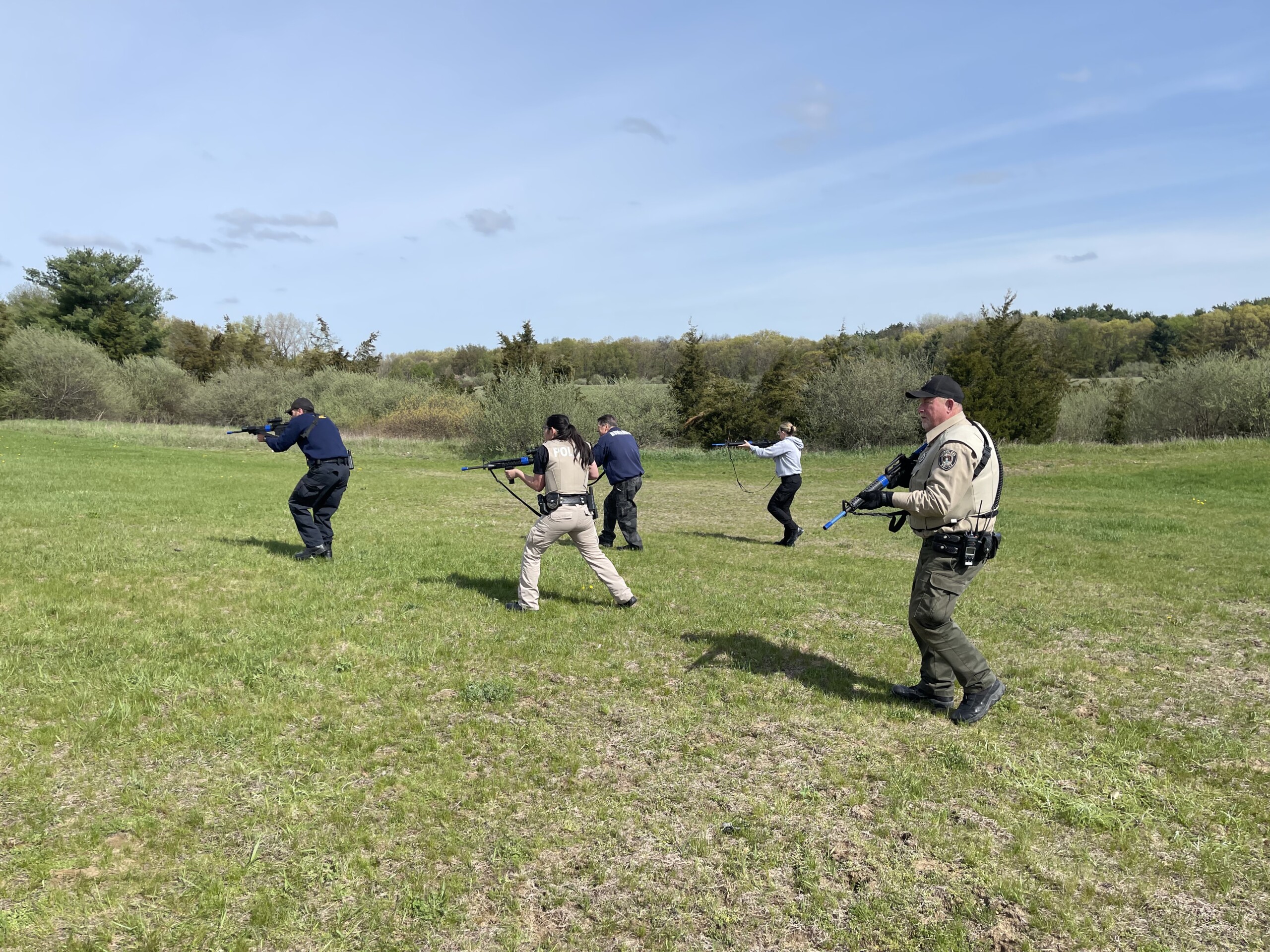
Description: This course is designed to prepare first responders for an open-air active shooter encounter. It addresses a variety of tactics and maneuvers when addressing an armed aggressor at an outdoor venue. This hands-on course will cover; proactive measures, formation movements, individual/ team movement techniques, immediate action drills for solo/pairs, coordinated team maneuvers and emergency vehicle rescues.
This course incorporates force-on-target and force-on-force reality-based scenarios to mimic the stressors of such events and to test the officers ability to grasp the concepts in a stress induced environment.
Some participants attending this course have found it to be physically challenging. Officers attending this course should be able to walk moderate distances, jog, kneel, crawl, and lift moderate weight. This is an outside class and is routinely conducted during inclement weather conditions.
The majority of officer involved shootings occur during low-light engagements. Officers are required to identify lethal threats before engaging, regardless of the lighting conditions. Therefore, officers need to train and become proficient with low-light tactics. This course is designed to give officers a tactical advantage in low light conditions. In addition to threat identification, officers will learn how to deploy their flashlights to search, navigate, control suspects and other useful tactics. This course will change the way you operate during low-light engagements. This Course will consist of lecture, isolation exercises to develop skills as well as force on force scenarios to reinforce tactics learned.
The officers will begin the encounter prior to making the stop with the assessment: Unknown, Elevated, or High Risk. Strategies will be covered on approaches, positioning, controlling occupants and other relevant tactics to give the officers a tactical edge. Officers are encouraged to look beyond the initial violation and look for the bigger picture. The format for this course is the model used with all Tactical Encounters courses; instruction, demonstrations, isolation drills and realistic scenarios using force-on-force application with the students to ensure they grasp the concepts and can apply them in real-life situations.
Felony Stops are also taught from several different perspectives.
This is a comprehensive training program emphasizing the responsibilities and attitudes of a firearms instructor. Instruction includes: weapons familiarization, weapon and range safety, nomenclature and instructional terminology, weapons inspection and maintenance, basics and fundamentals of handgun marksmanship and combat shooting techniques with the handgun, identification and correction of shooter problems in all phases of shooting practice and principles of instruction and training techniques.
MCOLES Registered FOR 302 FUNDING
This 4 day course is a challenging instructor level course which focuses on the development of instructor skills in the use and application of the AR-15/M-4 rifle platform. Students will learn instruction methods, lesson plan development, how to teach rifle fundamentals, and how to develop and implement training and qualification standards for their department. This course will give the Officer a thorough understanding of rifle marksmanship and the tactical use of the patrol rifle. This course will emphasize shooting from different positions, shooting on the move, shooting from covered positions, and shooting with speed and accuracy.
MCOLES approved for 302 funding!!
This Course is designed to teach officers the fundamentals of the patrol rifle, from nomenclature, care & cleaning, shooting positions, marksmanship and clearing malfunctions. After attending this Course officers will be proficient in the knowledge and use of patrol rifle and be able to operate it in a safe and operational manner.
Officers will also be placed in reality-based scenarios to use the skills they have learned to deploy their rifle in field exercises. The officers will use their personnel rifle during these exercises by removing the bolts and replacing them with a Ultimate Training Munitions (UTM) Bolt. This allows the officer to participate in the scenario with their actual weapon firing simulated bullets.
Upon successful completion the officer will be able to demonstrate proficiency in:
-The knowledge of the operational characteristics of an AR-15 weapon.
-The nomenclature and maintenance of the AR-15.
-Understanding of ballistics.
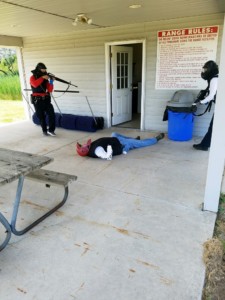 -The fundamentals of marksmanship.
-The fundamentals of marksmanship.
-Different shooting positions and sling usage.
-Different methods of carrying the rifle.
-Manipulation of the AR-15.
-Immediate action with the AR-15.
-Deployment techniques and application
For successful completion of this course the officer must pass a firearms course of fire
Two-Day Advanced Patrol Rifle Course
This course has been designed to build upon the skills already learned in a Basic Patrol Rifle Course. Students will then move onto more advanced tactics and reality-based scenarios utilizing their own rifles with UTM bolt inserts.
Officers will move past static courses of fire on the Range and challenged with dynamic real-world scenarios utilizing force-on-force simulators to challenge their decision making along with their newly acquired skill set. This Course was specifically designed to address light and low-light encounters.
This course will give the Officer a thorough understanding of rifle marksmanship and the tactical use of the patrol rifle. Officers will be challenged each day and will quickly gain experience, confidence and increase their skill level and effectiveness with the rifle.
Precision Rifle equipment list
The Precision Rifle Course is designed to develop officers ability to deliver precision fire under difficult circumstances and varied environmental conditions.
This course will cover deadly force, rifle marksmanship, positional shooting, administrative policies, communications, selecting equipment, maintaining equipment, ballistics, use of data book, range estimation, low light shooting, observation techniques, search methods, camouflage, field craft, shooting through intermediate barriers, scouting and building hides. Upon successful completion of this course the officer will be competent on the precision rifle and will have the abilities needed to be utilized as a basic police precision rifle operator.
The Advanced Precision Rifle is designed for previously trained precision rifle officers. This course is very hands on and tests previously learned skills. It is meant as a workshop to test skills and encourage sharing of information.
This Course is recommended for “Snipers” who wish to sharpen their skills and network with others in a friendly, competitive environment.
Marksmanship, Stalking, Observation exercises, KIMS games, reality-based scenarios and more will be covered at various ranges and training sites.
8:00 AM- 4:00 PM (Hours may vary)
Training sites will vary between Canton Township and Livonia.
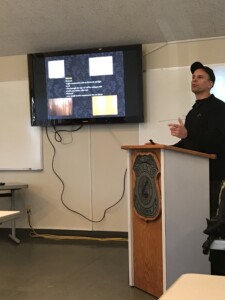
This Course was specifically designed for those officers whose assignment may require them to design a Raid Plan, conduct a briefing and then execute the plan on a structure that poses a risk to those involved. It will provide instructions on how to create a form that encompasses all necessary requirements for a safe and successful execution of the warrant, whether the objective is to seize property, or to make an arrest. The tactics taught in this class provide for fluid, yet safe methods for conducting searches and taking people into custody. Tactics include: Approach, positioning at entry points, breeching, tactical entries, establishing footholds, shielding, secondary sweeps, cover/contact principles and more. This Course involves lecture, demonstrations, practical exercises and reality-based scenarios.
This 4-day / 32-hour instructor certification course is designed to teach firearms instructors how to conduct safe live-fire training in a 360 degree live-fire training environment. Instructors will learn how to increase the skill level and confidence of their students through proper debriefing and coaching. Instructors will be mentored on setting up live fire scenarios that involve scenario and situational based philosophies. Instructors will be exposed to range training, non-lethal marking cartridge training and live fire scenarios.
This certification is anticipated to be mandatory for any police officers, police departments or special weapons teams utilizing the Camp Grayling, Automated Shoot House (ASH) after October 1, 2017. You do not have to be a Firearms Instructor to attend this course.
This course is designed for the officer assigned to a Special Weapons & Tactics (SWAT) Team, or an officer looking to obtain a position on a tactical team. This course will also benefit Narcotics officers assigned to a raid team, or patrol officers wishing to receive advanced techniques that may be called upon during their shift in today’s violent times. It is our belief that ALL police officers should be tactically trained.
The course curriculum covers firearms (Pistol/Rifle), advanced building entry tactics, low-light tactics, hostage rescue techniques, mission planning and more. Officers will then be placed in a variety of scenarios in both day and night operations with role-players designed to test you and your abilities.
BE ADVISED… This Course will vary hours to accommodate various situational environments.
Topics covered:
-Advanced Shooting Techniques of Tactical Weapons.
-Low Light Engagements
-Advanced Building Entry Tactics.
-Perimeters and Stalking Exercises
-Mission Planning.
-Hostage Rescue Techniques
Tactical Entry Instructor was designed to provide attendees with the knowledge, skills and tactics to share with Patrol Officers who from time to time may have to use this skill set in order to make an entry on a structure and then safely and efficiently clear that structure utilizing tactics and principles learned from this class.
Attendees will learn from several different mediums; classroom lecture, demonstration and hands-on applications during isolation exercises and reality-based scenarios. Once the concepts have been absorbed, the students will then take on the role of the instructor and demonstrate their new found knowledge through lecture and facilitating exercises and scenarios.
The PowerPoint presentation used in the lecture portion will be made available to all that successfully complete this course.
Times: 8:00 AM- 4:00 PM
Meet: Livonia Gun Range 32300 Glendale Livonia, 48150
To register visit www.tacticalencounters.com
This course follows the most recently updated guidelines put forth by the Committee on Tactical Combat Casualty Care (TCCC) and the Committee for Tactical Emergency Casualty Care (Co-TECC). TCCC is the standard of care for life saving medical care in the tactical environment. TCCC is the golden standard of care utilized by all US Military Special Forces Medics and medically trained soldiers.
The focus of this class is to give each student the ability to recognize, evaluate and control life threatening injuries thus greatly increasing the patient’s chance of survival.
This is a registered course with MCOLES (Michigan Commission on Law Enforcement Standards) and is eligible for P.A. 302 funding.
For individuals that possess a State of Michigan EMS license (MFR, EMT, AEMT, Paramedic), 6 continuing education credits are included.
The course will cover the following:
-Define TCC Self-Aid/Buddy-Aid.
-Cover materials that make up the “Individual First Aid Kit” IFAK.
-Define the 3 phases of TCC – Direct Threat Care, Indirect Threat Care, and CASEVAC.
-Perform a rapid/basic patient assessment and perform medical interventions during Self-Aid/Buddy-Aid.
-Demonstrate skills proficiencies on the application of tourniquets, hemostatic agents, and pressure bandages. Apply occlusive dressings to penetrating chest wounds, and properly control a patient’s airway.
-Demonstrate Casualty Extraction Techniques utilizing a variety of manual carries.
Officer IFAK’s (Individual First Aid Kit)
The Officer IFAK that will be issued to each student contains the necessary equipment to provide these life-saving skills on themselves or someone else. This includes the CAT-Combat Action Tourniquet, ETD or ITD pressure bandage, Combat Gauze, and an Occlusive Chest Seal (a $100.00 value)!! Each attendee will be trained on how to effectively use each item in their IFAK. These IFAK’s are designed to be easily added to an Officer’s gear or fit in a patrol vehicle.
The techniques taught at LEDTS will provide students with the training, skills, and abilities officers must have in the current climate to overcome new challenges and to remain safe in the line of duty.
With over 100 local, state, and federal law enforcement officers currently training at the academy, we know firsthand how effective the techniques and strategies have been in order for an officer to leave a dangerous situation unharmed. We have heard countless times how a technique or strategy that we have taught has resulted in an officer leaving a situation without further escalation of force.
The techniques taught in this Course will emphasize officer safety, reasonable and effective control methods and decrease the likelihood for excessive force. 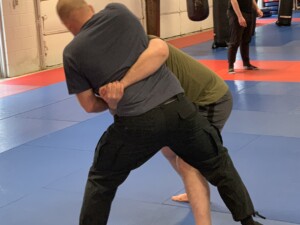
Reality-Based training has become the new standard for preparing officers to deal with field operations. Officers can gain some knowledge by reading a book, or attending a seminar, but in order to hard-wire it into their subconscious and be able to recall the information under stress, officers need to experience the sights, sounds and feel of actual encounters. Officers can then use those experiences for future encounters and be better prepared in their decision making process. Officers participate in scenarios that are based on real world police encounters; traffic stops, disturbance, suspicious, robbery-in-progress, domestic, etc. The officers are challenged to put their training and experience to use in order to resolve the situation and take the conflict to a natural conclusion. Once the scenario has concluded, instructors will conduct a debrief to elicit from the officer what they did right, wrong and suggestions they would make in the future when experiencing similar circumstances.
Benefits from attending this Course:
-Increase situational awareness
-Gain knowledge & experience
-Improve communication skills
-Confidence builder
-Reduced anxiety/stress
Force-on-Force Ultimate Training Munitions (UTM) will be utilized to enhance the reality of the scenarios and in some cases, allow the officer to apply deadly force decision making while involved in the scenario.
Emergency Response to Active Shooter Events Advertisement #2
This Course is designed to inform and empower individuals to prepare and train for emergency actions they can take when confronted with an Active Shooter.
When faced with a situation that can lead to serious bodily injury or death, human instincts activate in order to aid us in survival, which we refer to as survival stress. Because we all do not share common life experiences, not all of our responses will be the same. This Course identifies human responses to survival stress and then places the students in various scenarios in order to illicit those responses based on the stimulus they are experiencing.
This training is beneficial to anyone that frequents locations where these types of atrocities occur; businesses, schools, entertainment, worship, etc.
If you would like more information on how we can bring this training to your organization, please contact us.
